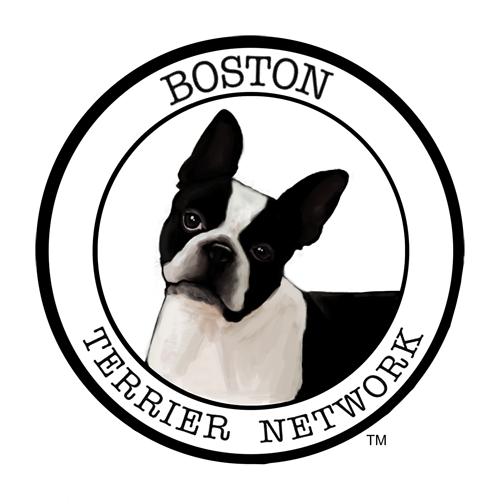problem of dogs growling over their food
UnpublishedBut in reality, growling over food can escalate to more severe problems.
No dog should growl at a person over food.
If you have several problems with your dog and growling over food is one of them, fixing this problem may go a long way toward clearing up the others as well.
A wonderful solution to this problem, suggested by Lisa Ochoa is as follows: Assuming that part of the reason the dog is growling is that it is guarding its resources, put down three bowls with the dog's meal split between the three.
Have something irresistibly yummy at hand: Hotdogs, bits of chicken, liver, etc.
Put all three bowls down, and as the dog is eating out of one bowl, pick another up, add some of the treats to it, and put it back down again.
Keep this up until all the food is eaten. This way you are teaching the dog that people are not a threat to its food, which is as it should be.
In dealing with this problem, always think in terms of taking the food away from the dog and NOT in terms of taking the dog away from the food.
In other words, if you try to push the dog away from his dish, you've potentially escalated the confrontation to a physical one; if you take the dish away, his attention is concentrated instead on the dish.
When your dog is jealous of a new adult
When a new person is spending time or living in your home, both you and the new person can help your dog adjust to the change.
Keep your dog's routine. Jealousy comes in part from fear that the dog will lose his place in your life. Help alleviate that fear by keeping his life as normal as possible. Feed him at the same of day as usual, and if you have usual times to take him for walks and play with him, keep to that schedule too.
Give your dog extra attention. More attention is always welcome, and at a time when your dog is anxious, it helps reinforce his importance to you and makes him feel less threatened.
Have the new person spend time with the dog. If the new person takes the dog on some of his walks, plays with him, and feeds him some of the time, your dog will find it easier to recognize the new person as part of the family.
Reinforce basic training. Your dog may try to take control of the situation. If he behaves aggressively in the new person's presence, use these times to reinforce basic training. Remind him that you are in charge, and he'll be less likely to behave in unacceptable ways.
When your dog is jealous of a new baby
Before the baby arrives
If the new baby will be the first baby in your family, help your dog become accustomed to babies beforehand:
- Tape a baby crying, and play the tape at home several times a day.
- Bring your dog to the home of someone who has a baby, or invite that friend and her baby to your home. Let the dog see and smell the baby while you keep control of the dog.
- While you're in the hospital, have your partner bring home a blanket or piece of clothing that the baby has used so that the dog can become familiar with the baby's scent.
You walk through the door, baby in arms, and your dog jumps up in his excitement to greet you after your absence. You admonish him. And he associates the baby with a negative experience.
A better way to handle the introduction is for you to come in the home first without the baby while your partner waits with the baby for a few minutes in the car. This way, your dog can enjoy his time with you first.
After he's greeted you, he'll be ready to find out about the newcomer. Allow him to see and smell the baby, and give him attention in the presence of the baby to reassure him that he's still important too.
Baby space and dog space
Should your dog be allowed in the baby's room? Some people say no, especially after the baby can crawl. Before then, however, keeping your dog out of the baby's room means that he's shut out of a lot of the family activity. Depending on your dog, you may want to just teach him that certain areas are out of bounds, such as the crib and the chair where you sit to nurse the baby.
After the baby can crawl, the baby and the dog should each have an area where the other one doesn't intrude. A dog crate may be enough space for the dog to retreat to when he doesn't want to be around the baby.
Both babies and dogs like toys that squeak. Keep their toys separate, and to reduce confusion, avoid giving them the same types of toys.
Baby and dog together and apart
Never leave your baby and dog alone together. They may appear to get along, but the baby's uneven movements may trigger the dog's hunting instinct. If your baby pulls on the dog's ear or picks up his toys or food, your dog may react angrily. Let them get to know each other, but always supervise their time together.
Watch your dog's body language. If you see any indication of annoyance or aggression, it's time to separate your baby and your dog.
When your baby and your dog are together — and when they aren't — be sure to give your dog lots of attention. Reinforce the idea that he's still as loved and wanted as he was before the baby came. If you don't have as much time to spend with your dog, ask your partner to spend more time with him. In particular, make sure that your dog continues to get regular exercise to burn off any excess energy.
Preventing the Problem: a new member of the household
The protocol for prevention is largely the same as the Counter-Conditioning part of the remedial protocol. Usually in prevention you don't need to do the gradual desensitization because the dog is not yet reacting badly to the approach of the potential Rival. You'd still begin by giving the dog pleasure while the potential Rival is not yet real close simply because you want at first to make more opportunities for the dog to get a good association of the Rival with good stuff happening. So maybe at first, "the bar is open" when the potential Rival enters the same room as the Object and the "bar is closed" when the Rival leaves the room. Also you probably don't need to be as intense about the pleasures provided, and don't need to be as total about ignoring the dog when Rival is absent. Just make sure that the dog associates the Rival with improved quality of life for the dog. Once you see that the dog has a very welcoming attitude towards the potential Rival, then you can transition to living normally. Just be sure that this other person continues to be a source of some good things to the dog, such as petting the dog or taking the dog for a walk, or being the one to set down the dinner bowl.
When the potential Rival is a baby, the advice is to begin changing the dog's lifestyle many months before the baby is born. One does after all usually know many months in advance of the actual birth. So the advice is to gradually wean the dog down to a lower level of overall attention months ahead of birth time. One could also get the dog used to other people's children and associate their presence with pleasant events for the dog. It's good advice to get the dog used to doing some ordinary events somewhat differently. Perhaps the dog's seating assignment in the car will change because of placement of the child-safety seat, so buy and install the seat ahead of time. Certainly the dog will be doing walks beside a baby carriage or stroller, so get in practice ahead of time (this also let’s the humans master the skills needed to manage leash and carriage simultaneously).
Please be aware that anti-Jealousy training is not the only potential baby issue. Very very rarely a dog will react to an infant as if it were a prey species. This is enormously dangerous, and the usual advice is that infant and dog should not be in same household until the infant is old enough that the dog does not regard it as prey. Again, this is a very rare problem and I mention it only because recognizing its occurrence is essential. If you have the slightest reason to suspect that your dog is reacting to an infant in a predatory manner, immediately get professional help from a really well qualified behaviorist, and keep dog and infant completely separated until such help is at hand.
When the potential Rival is a human adult, first consider whether your dog is normally very friendly towards strangers or whether your dog is indifferent, fearful, or hostile towards strangers. The dog who, like my Pixel, adores everyone is most unlikely to ever develop a Jealousy problem. All you need to do is to avoid neglecting the dog because of whatever attention you are paying to the new human. The dog that is indifferent or fearful or hostile to strangers is much more likely to develop a Jealousy problem if you don't monitor the relationship and take preventative measures.
When the potential Rival is a human adult who is the dog's owner's new sweetheart , Significant Other, prospective live-in lover, or (for those extremely traditional and optimistic) prospective spouse, the best advice is to have the dog and the prospective live-in become friends well before the move-in. So start the prevention program well before move-in date by making most encounters with the new person especially delightful for the dog. You probably don't need to reduce your attention to the dog when new person is absent. It's worth investing effort by both humans to ensure a good relationship between new person and the dog. (If dog and other really don't get along, I'd recommend forgetting about a closer relationship with that person. "Love me, love my dog --- and make yourself loveable to my dog!”. And if your sweetheart ever says "either the dog goes or I go" you should reply "I'm sorry to hear that because I will miss you.")
When the potential Rival is a human adult who is a prospective roommate or house-mate, you are probably less likely to run into trouble because you probably would only invite someone to share your home as roommate if that person were already a dog lover and at least somewhat dog-savvy. We tend to choose our roommates with more rational judgment than we tend to choose our sweethearts, etc. And when a roommate relationship does not work out, there is seldom the same level of anguish and acrimony as when a romantic cohabitation breaks up. (Though to judge from episodes of Judge Judy, roommate break ups can be bad enough). In any case, if you suspect your dog might be the possessive kind, plan ahead with the prospective roommate to do some Jealousy prevention.
When the potential Rival is another dog, first of all assess your dog's general dog to dog sociability by introducing your dog to a series of individual dogs who have a history of being very dog-sociable. You may find that your dog really enjoys the company of other dogs. If so then only a small bit of jealousy prevention will be needed, and indeed may be superfluous.
If you are selecting a second dog, ideally that second one is of opposite sex to the first one -- and at least one of the pair is altered. A neutered male and a spayed bitch are almost certain to get along unless one of them is seriously deficient in dog-socialization. Ideally the second dog is also one with good dog to dog social skills. If you have made such a favorable choice then probably the only prevention measures you need will be just to avoid neglecting your original dog during the "honeymoon" when you are enchanted by the new dog and need to spend a lot of time working on the new dog's basic training. If the new dog is a puppy, it's easy to be so entranced by the puppy that your adult dog gets neglected and might feel rejected. Most adult dogs are pretty tolerant towards puppies, but it still is wise to be aware of the need to give attention to the adult in ample measure.
n the case of jealousy the mind of a dog works in almost an identical way to that of a human being. It wants the full attention and love of its owner whether the jealousy occurs only when another dog enters the home or when the beloved owner talks to another dog outside, or whether the jealousy is aimed at another person in the home. The same driving force is at the root of the evil in all of these cases: the intention of the dog to reign alone and supreme in his household.
The guarding instinct so prevalent in some breeds has its roots in the same sort of thing; a desire to let no one enter the precincts of his master or mistress. Jealousy nearly always takes the form of a show of viciousness toward the dog or person the animal is jealous of. Quite often it is a mild form of jealousy and only involves its bone, toy or the piece of rug that it is fond of. It jealously guards them and woe betide anyone trying to take that object away.
This jealousy is particularly pronounced when puppies are reared and kept in the household. As the puppy reaches the age of about three months the mother will begin to feel jealous as her maternal instinct fades and the time draws near for another heat. In spite of the attempt to treat both dogs equally and always to talk to both at the same time, feeding both at the same time and exercising both together, the jealousy continues to grow.
Correction works at first and then bit by bit grows less effective. In the dog's mind a usurper has entered the scene, and, as in the wild state, it is trying to turn the young out of the nest. As she fails to get rid of the now grown up pup, her temper gets worse and worse in the effort to dislodge the now adult and unwanted member of the household. She becomes more and more thwarted as her owner attempts to make the newcomer as welcome as the old established member. Often she will turn on her owner when he is trying to make peace, as if she were trying to impress an ignorant person that it was time the youngster went out into the world to fend for itself.
If you are a really good handler your training methods will be good enough to make both dogs obey the command "Leave" when they are in your presence. The danger lies in the times you leave the dogs together on their own, for the slightest boldness on the part of the youngster in approaching the older one's basket or toy, etc., will infuriate the older dog, and she will set on the youngster tooth and nail.
Top of Page
- Details
- Written by Donna






